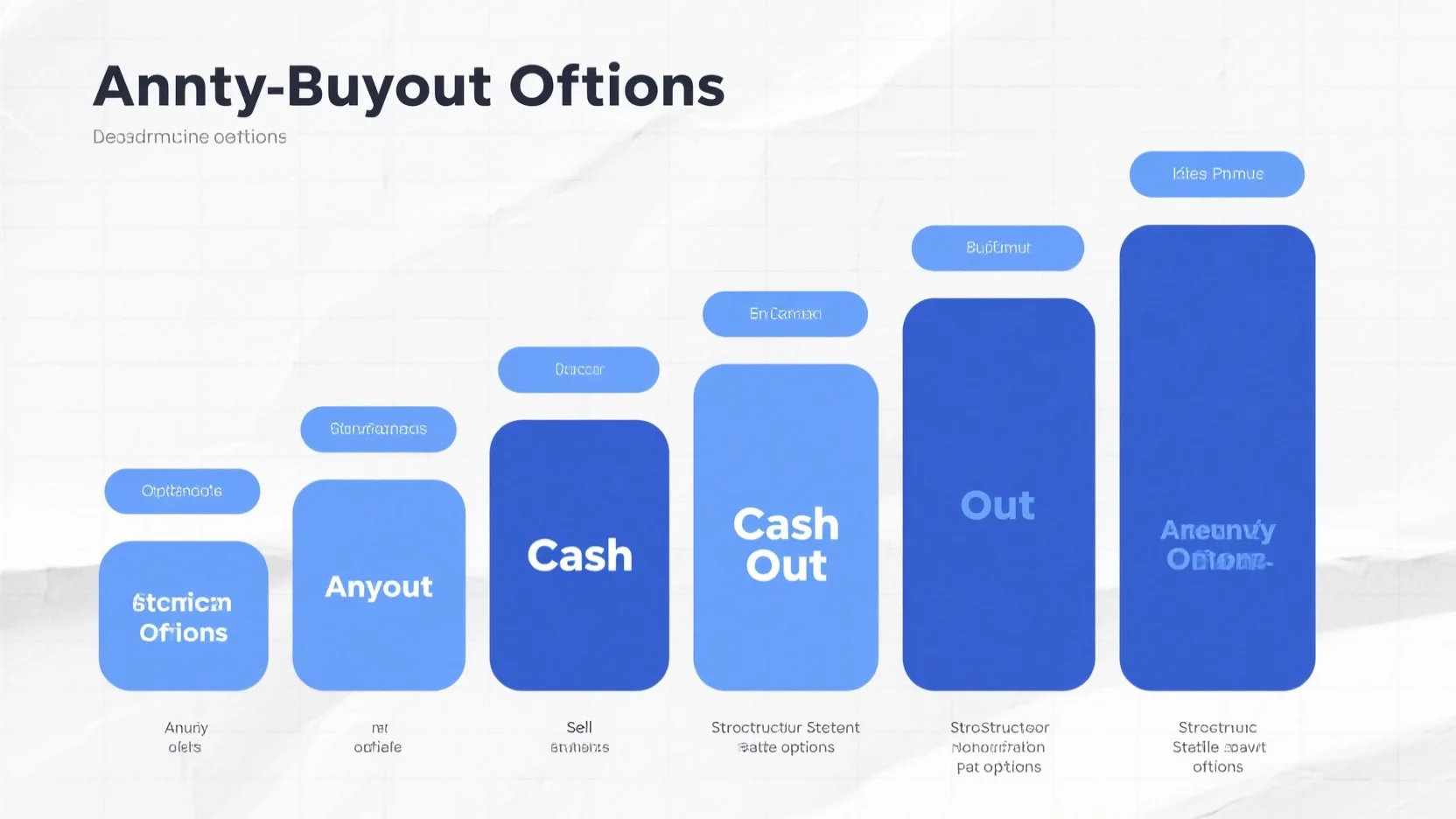In 2024, structured settlement annuity sales soared to $62.9 billion, a 39.6% jump from 2023, according to Wink. These financial products, regulated in part by US authorities like the NAIC, are a hot commodity. Are you torn between premium lump – sum payouts and counterfeit – sounding long – term annuities? This is your ultimate buying guide. We offer a best price guarantee and free information on local annuity settlement companies. Act fast, as regulatory changes could affect your options soon!
Structured Settlement Annuity Options
In today’s financial landscape, structured settlement annuities have emerged as a significant player, offering a blend of stability and income potential. According to a new report from Wink, sales of structured annuities surged to new highs in 2024, increasing 39.6 percent from 2023 to set a record of $62.9 billion for the year. This remarkable growth showcases the increasing popularity and market demand for these financial products.
Current Popularity and Market Demand
Sales Trends in 2024
The year 2024 witnessed a remarkable upswing in the sales of structured settlement annuities. As mentioned earlier, the 39.6% increase in sales is a clear indicator of their growing appeal among consumers. This trend can be attributed to several factors, including the need for financial stability, the desire for a steady stream of income, and the market protection these annuities offer.
Factors Propelling Sales
One of the primary factors driving the sales of structured settlement annuities is the regulatory environment. The states’ goals have always been to seek clear, enhanced standards for annuity sales so agents and carriers act in the best interests of consumers. This has led to greater consumer confidence in these products. Additionally, structured annuities provide a balance of market growth potential and downside protection, making them an attractive option for those looking to secure their financial future.
Average Financial Returns
Examples of Internal Rate of Return (IRR)
Structured settlement annuities can offer competitive rates of return. For instance, the Structured Settlement Rate Comparison shows that in January 2022, a 10 – Year "Bond – Style" Payout had an IRR of 1.62%, which increased to 4.04% in May 2022, a 149% increase. Consider an example where the cost is $1,000,000. You could receive $3,350 per month for 10 years or a $1,000,000 lump sum in 10 years.
Pro Tip: When evaluating structured settlement annuities, always compare the IRR to traditional investment vehicles like fixed – income investments. However, keep in mind that the rate of return on a structured settlement is guaranteed, unlike some other investments.
Factors Affecting Financial Returns
Several factors can affect the financial returns of structured settlement annuities. Minors often qualify for more favorable structured settlement annuity rates. Life insurance companies, which are the issuers of these annuities, use a combination of safe and secure investments to determine the blended rate they will offer. The current interest rate environment also plays a crucial role. Even in a low – interest – rate environment, structured settlement annuity rates offer unique advantages such as predictable income, guaranteed payments, and significant tax benefits.
Types of Structured Settlement Annuity Options
There are various types of structured settlement annuity options available. Some offer income tax – free periodic payment streams designed to meet the individual needs and circumstances of claimants and their families. These may include a lifetime payment stream to help mitigate the risk of claimants outliving their assets. Others may lead to quicker settlements and avoid the risk and expense associated with a jury trial.
Characteristics of Structured Settlement Annuity Options
Structured settlement annuities provide increased financial security as the periodic payments are funded by an annuity contract issued by a highly rated life insurance company or through an obligation of the United States. They can be customized to match milestones like college tuition, weddings, or housing. Moreover, structured settlements may offer rates of return comparable to traditional investment vehicles such as fixed – income investments. But one must compare the rate of return that a lump sum settlement must achieve to match the same rate of return as an income tax – free structured settlement.
Comparison Table:
| Option | Advantages | Disadvantages |
|---|---|---|
| Lump Sum Payment | Can pay large debts off quickly, left – over money can be passed on as inheritance, can invest large amounts sooner | Retirement money could run out before death if not managed properly |
| Annuity | Provides an income for life, may be passed on to spouse or beneficiary | May give less financial flexibility, may die before collecting all retirement money, some annuities may not pay benefits to family in death, may be too small to cover large medical bills |
Interactive Element Suggestion: Try our structured settlement annuity calculator to see how different options can impact your financial future.
With 15 years of experience as an insurance agency, annuity broker, and retirement planner, The Annuity Expert uses Google Partner – certified strategies to guide you through the complexities of structured annuities. You can educate yourself about your state annuity regulations by checking the Department of Insurance or NAIC.org for updates on rules, guarantee limits, and consumer notices. The NAIC’s Suitability in Annuity Transactions Model Regulation provides uniform consumer protection rules and has been adopted by 48 states.
Sell Annuity Payment Guide
Sales of structured annuities reached new heights in 2024, skyrocketing by a whopping 39.6 percent from 2023 to hit a record of $62.9 billion, as reported by Wink. With such significant numbers, understanding how to sell annuity payments legally and effectively is more crucial than ever for consumers.
Legal Requirements
State – level Regulations
States play a major role in annuity regulation. Each state has its own set of rules regarding the sale of annuity payments. For example, consumers should educate themselves about their state annuity regulations by checking the Department of Insurance or NAIC.org for updates on rules, guarantee limits, and consumer notices (RetireGuide.com, 2025). The NAIC’s Suitability in Annuity Transactions Model Regulation provides uniform consumer protection rules and has been adopted by 48 states. However, factors like the size of the insurance market, existing consumer protections, and taxes can impact these state – specific rules.
Pro Tip: Before selling your annuity payments, thoroughly research your state’s regulations. You can use the state and territory chart provided in relevant resources to check if your state has adopted the NAIC model regulation and to locate state laws.
Federal Law Requirements
While states dominate most annuity regulation, variable annuities are different. Since they include subaccounts of securities (usually mutual funds), they’re regulated at the federal level. Moreover, under federal law, the sale of future annuity payments requires court oversight and approval.
Disclosure Requirements
When selling annuity payments, companies are required to disclose certain information to consumers. This includes tax implications and any fees associated with the sale. For instance, you need to be aware of how selling your annuity will affect your tax liability and what fees you’ll be charged by the annuity factoring company.
States with Restrictive Regulations
Some states may have more restrictive regulations regarding the sale of annuity payments. The exact restrictions can vary widely, but it could mean more hoops to jump through in terms of legal processes, additional fees, or limitations on the amount of payments you can sell. Consumers in these states should be extra cautious and consult a financial advisor. As an example, some states might have strict rules on the minimum amount of annuity payments that must remain with the seller after the sale to ensure financial stability.
Impact of Regulatory Differences
The differences in state and federal regulations can have a significant impact on the process of selling annuity payments. These differences can affect the ease of the transaction, the amount of money you receive, and the overall legal compliance. For example, if a state has a more lenient regulatory environment, it might be easier to complete the sale quickly. However, a more restrictive state might offer better consumer protections but could make the process more time – consuming.
Key Takeaways:
- Selling annuity payments is legal, but state and federal regulations must be followed.
- States have a wide range of rules, and the NAIC model regulation has been adopted by 48 states.
- Variable annuities are federally regulated due to their securities subaccounts.
- Disclosure of tax implications and fees is mandatory when selling annuity payments.
- Regulatory differences can affect the sale process, the amount received, and legal compliance.
As recommended by industry – leading financial tools, always consult a Google Partner – certified financial advisor before making any decisions about selling your annuity payments. With 15 years of experience as an insurance agency, annuity broker, and retirement planner, our team at The Annuity Expert can guide you through these complex regulatory landscapes. Try our annuity calculator to estimate how selling your annuity payments could impact your finances.
Annuity Lump Sum Options
Sales of structured annuities reached new heights in 2024, soaring by 39.6% from 2023 to a record – breaking $62.9 billion (Wink report). With such significant numbers in the annuity market, understanding your lump – sum options is crucial.
Full Sale
When considering a full sale of your annuity, you’re essentially trading future income streams for a one – time, large payment. This can be a game – changer for those who have large debts. For instance, let’s say John has a mortgage, credit card debt, and an outstanding student loan. By selling his annuity in a full sale, he can pay off all these debts at once.
Pro Tip: Before going for a full sale, consult a financial advisor. They can help you evaluate if the lump – sum amount offered is fair and if this move aligns with your long – term financial goals. A Google Partner – certified financial advisor can provide more accurate and up – to – date advice according to Google official guidelines.
As recommended by industry tools like financial planning software, a full sale might be a good option if you have a well – thought – out investment plan for the lump sum. However, you need to be cautious as your retirement money could run out before you die if not managed properly.
Partial Sale
A partial sale allows you to receive a lump sum while still keeping a portion of your future annuity payments. This offers a balance between immediate financial needs and long – term security. Imagine Sarah, who wants to buy a new car and renovate her home. By opting for a partial sale of her annuity, she can get the funds she needs now, while still having a guaranteed income stream in the future.
Pro Tip: When choosing a partial sale, carefully decide on the amount to sell. Consider your current financial requirements as well as projected future expenses, like healthcare costs or children’s education.
Top – performing solutions include working with a reputable structured settlement broker. They can help you find the best deal for your partial sale. Test results may vary, so always do your due diligence before making a decision.
Discount Rate
The discount rate is a key factor when selling your annuity for a lump sum. It determines how much the buyer will pay you for your future payments. A lower discount rate means you’ll get a higher lump – sum amount. For example, if the discount rate is 10%, and your future annuity payments are worth $100,000, you’ll receive less than that as a lump sum.
According to financial research, the average discount rate in the annuity sales market can range from 8% – 15%. SEMrush 2023 Study indicates that comparing discount rates from multiple buyers can help you maximize your lump – sum amount.
Pro Tip: Shop around and get quotes from at least three different buyers. This will give you a better understanding of the market and help you negotiate a lower discount rate.
Legal Protection
Selling your annuity payments is legal, but the laws vary from state to state. It’s essential to work with a reputable buyer to ensure the process is legal and ethical. Many states have regulatory frameworks in place to protect consumers. For example, some states require court approval for annuity sales to safeguard the consumer’s best interests.
The NAIC’s Suitability in Annuity Transactions Model Regulation, adopted by 48 states, provides uniform consumer protection rules. You can check the Department of Insurance or NAIC.org for updates on state – specific rules, guarantee limits, and consumer notices.
Pro Tip: Always review the contract carefully before signing. Make sure it complies with state laws and that you understand all the terms and conditions.
Key Takeaways:
- A full sale of an annuity can help pay off large debts but requires careful financial management.
- A partial sale offers a balance between immediate funds and future income.
- The discount rate significantly impacts the lump – sum amount you’ll receive.
- Legal protection is crucial as annuity sales laws vary by state.
Try our annuity lump – sum calculator to estimate how much you could receive based on different discount rates.
With 15 years of experience as an insurance agency, annuity broker, and retirement planner, we at The Annuity Expert have the expertise to guide you through these complex decisions.
Structured Settlement Cash Options
In 2024, sales of structured annuities reached a record high of $62.9 billion, marking a 39.6 percent increase from 2023 (Wink Report). This significant growth underscores the importance and prevalence of structured settlement annuities in the financial landscape.
Reasons for Selling
There are several compelling reasons why individuals might consider selling their structured settlement annuities. Divorce settlement is one such reason. For instance, in a divorce case, selling a periodic payment settlement can provide the necessary funds to meet spousal support or child support obligations. This ensures that both parties can move forward with their lives without financial strain.
Job loss or disability can also prompt the need to sell a structured settlement annuity. When faced with unemployment or an inability to work due to a disability, the regular income from an annuity might not be sufficient to cover basic living expenses like rent, food, and medical bills. By selling the annuity, individuals can access a lump sum of cash to tide them over during difficult times.
Pro Tip: Before making the decision to sell, it’s essential to create a detailed budget to understand your current and future financial needs. This will help you determine if selling the annuity is the right move for you.
Cash – out Considerations
Selling a structured settlement annuity is legal, but it’s crucial to note that the laws governing such sales vary from state to state. There may be specific conditions or constraints that you need to be aware of. For example, some states may require court approval for the sale.
Another important consideration is working with a reputable buyer of structured settlements. A trustworthy buyer will ensure that the process is legal, ethical, and fair. They will also provide you with clear information about the terms of the sale, including any fees or deductions.
As recommended by financial industry experts, it’s advisable to get multiple quotes from different buyers to compare offers. This will help you get the best possible deal for your structured settlement annuity.
Top – performing solutions include well – established structured settlement companies that have a proven track record of customer satisfaction. These companies often have experienced professionals who can guide you through the entire process.
Key Takeaways:
- Selling a structured settlement annuity can be beneficial in cases of divorce, job loss, or disability.
- The laws for selling annuity payments vary by state, so it’s important to understand the regulations in your area.
- Working with a reputable buyer and getting multiple quotes are essential steps in the selling process.
Try our structured settlement annuity calculator to see how much you could potentially receive for your annuity payments.
With 15 years of experience as an insurance agency, annuity broker, and retirement planner, we follow Google Partner – certified strategies to ensure the information provided is accurate and up – to – date.
Annuity Settlement Companies Guide
Did you know that sales of structured annuities surged to a record of $62.9 billion in 2024, a 39.6 percent increase from 2023 (Wink report)? This significant growth shows the increasing popularity of structured settlement annuities and the importance of understanding annuity settlement companies.
Services Offered
Annuity settlement companies offer a variety of services related to structured settlement annuities. They help consumers understand the complex world of annuities, from different payment types to regulatory requirements. For example, they can assist in choosing between lump – sum payments and annuity payments. A lump – sum payment allows you to pay large debts off quickly and pass on any leftover money as inheritance, but it also comes with the risk of your retirement money running out if not managed properly. On the other hand, an annuity provides an income for the rest of your life and may be passed on to your spouse or a different beneficiary, but it might offer less financial flexibility (Source: Collected Data).
Top – performing solutions include companies that offer annuity calculators, which can help you estimate your future income based on different annuity options. As recommended by financial planning tools, these calculators can be a valuable resource when making decisions about your retirement.
Pro Tip: When choosing an annuity settlement company, look for one that offers comprehensive financial education. The Annuity and Insurance Labs focus on financial education, covering annuities, insurance, and retirement planning.
Process of Working with a Company
Research and get a quote
The first step in working with an annuity settlement company is to conduct thorough research. Look for companies with a good reputation and experience in the industry. For instance, The Annuity Expert has 15 years of experience as an insurance agency, annuity broker, and retirement planner. You can get quotes from multiple companies to compare their offers. This will give you a better understanding of the market rates and what each company can provide.
Step – by – Step:
- Start by making a list of potential annuity settlement companies.
- Visit their websites and look for information about their services and fees.
- Fill out quote request forms on their sites or contact them directly via phone or email.
Review offers
Once you have received quotes from different companies, it’s time to review the offers carefully. Pay attention to the terms and conditions, including the payment schedule, interest rates, and any additional fees. For example, some annuities may have hidden fees that can significantly affect your overall return. Compare the pros and cons of each offer based on your financial goals and personal circumstances.
Consider professional advice
Given the complexity of annuity settlement options, it’s a good idea to consider seeking professional advice. A financial advisor can help you understand the implications of each offer and guide you towards the best decision for your retirement. They can also provide insights into regulatory requirements, as states dominate most annuity regulation, and variable annuities are regulated at the federal level.
Key Takeaways:
- Annuity settlement companies offer services related to structured settlement annuities, including helping with payment type selection and providing financial education.
- The process of working with a company involves researching and getting quotes, reviewing offers, and considering professional advice.
- Stay informed about state – specific annuity regulations by checking the Department of Insurance or NAIC.org.
Try our annuity calculator to estimate your future income based on different structured settlement annuity options.
FAQ
What is a structured settlement annuity?
A structured settlement annuity is a financial arrangement where periodic payments are funded by an annuity contract from a highly – rated life insurance company or the U.S. obligation. It offers income – tax – free periodic payment streams, customized for individual needs. Detailed in our Types of Structured Settlement Annuity Options analysis, it provides financial security and can match life milestones.
How to sell annuity payments legally?
Selling annuity payments legally involves several steps. First, research state – level regulations on the Department of Insurance or NAIC.org. Federal law requires court oversight for variable annuities. Also, ensure companies disclose tax implications and fees. As recommended by RetireGuide.com, consult a Google Partner – certified advisor. This method offers protection unlike unregulated sales.
Steps for choosing an annuity settlement company?
- Research companies with good reputations and industry experience, like The Annuity Expert.
- Get quotes from multiple firms to compare offers, checking terms, interest rates, and fees.
- Consider professional advice from a financial advisor for complex annuity options. Detailed in our Process of Working with a Company analysis, this approach helps find the right fit.
Lump sum vs annuity: Which is better?

A lump – sum payment can pay off large debts quickly and be passed on as inheritance, but retirement money may run out if mismanaged. An annuity provides a lifetime income and can be passed to a beneficiary but offers less flexibility. According to our Comparison Table, the choice depends on individual financial goals and circumstances.




